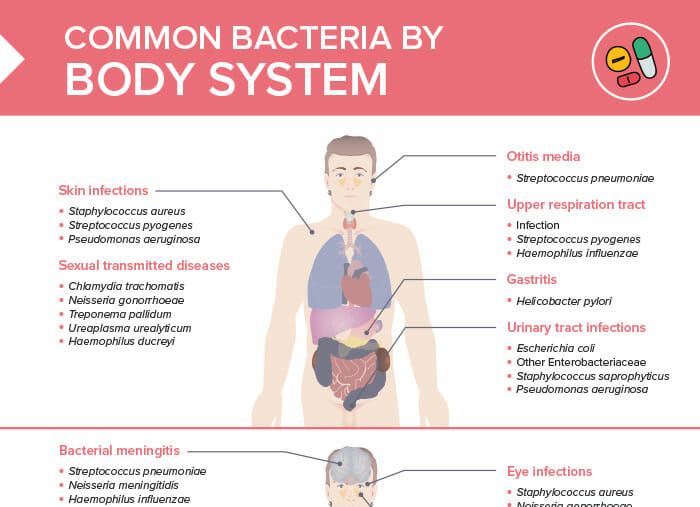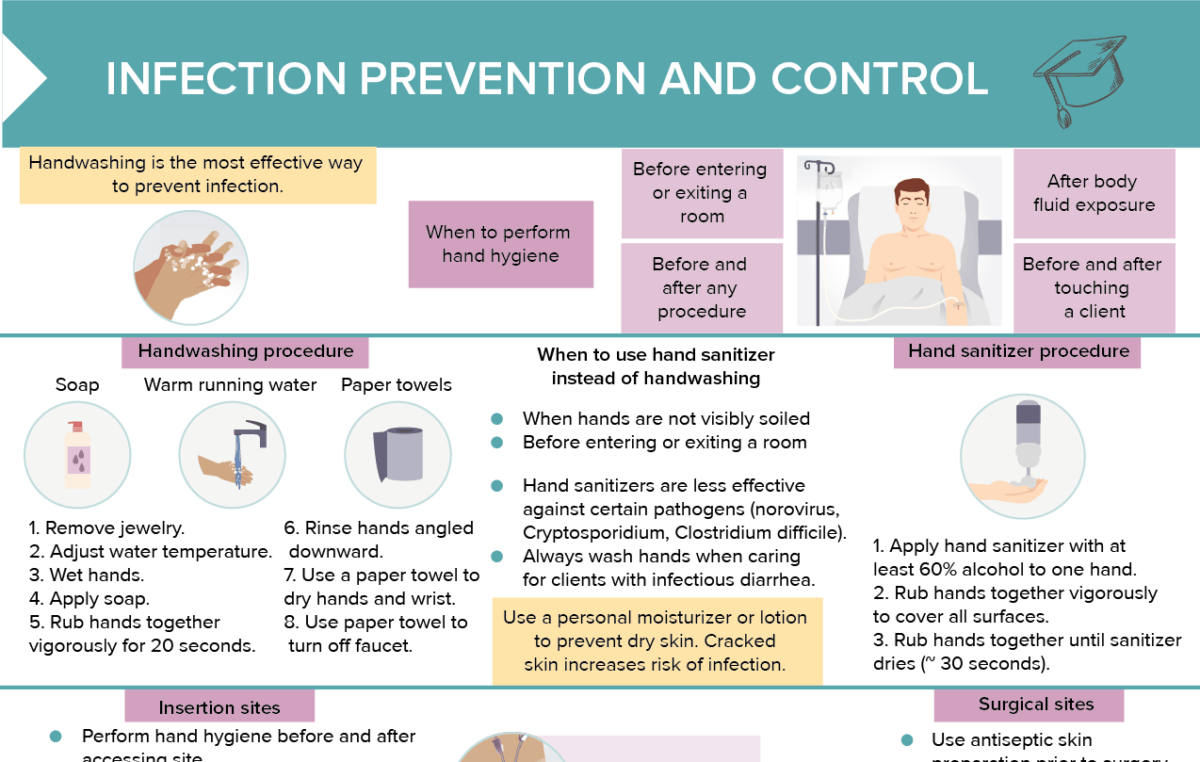What is infection control?
Infection control refers to all practices, procedures and rules with the goal of preventing the spread of infectious diseases in healthcare settings (including hand hygiene, PPE usage, sterile equipment, etc).
Related videos
Infection control training
Infection control training is often mandatory for nurses as part of their initial orientation in healthcare facilities, and periodically throughout their career. Topics typically covered include hand hygiene, use of personal protective equipment (PPE), safe handling of sharps, and waste management.
After nursing school, infection control training is typically offered by hospitals themselves, but there are also online courses and training modules offered by organizations like the CDC.
What is infection prevention?
The terms infection control and infection prevention are often used interchangeably. You can see infection prevention as a subcategory of infection control that focuses on trying to stop infections from occurring in the first place.
Signs and symptoms of infection
Here’s what to look out for in your clients:
- Fever
- Swelling
- Chills
- Erythema
- Local warmth
- Tenderness
- Red streaks
- Discharge
- Foul odor
- Delayed healing
Importance of proper hand hygiene
Handwashing is the most effective way to prevent infection.
When to perform hand hygiene:
- Before entering or exiting a room
- Before and after any procedure
- After body fluid exposure
- Before and after touching a client
Handwashing procedure steps
Items needed: soap; warm running water; paper towels
- Remove jewelry.
- Adjust water temperature.
- Wet hands.
- Apply soap.
- Rub hands together vigorously for 20 seconds.
- Rinse hands angled downward.
- Use a paper towel to dry hands and wrist.
- Use paper towel to turn off faucet.
Hand sanitizer procedure steps
When to use hand sanitizer instead of handwashing:
- When hands are not visibly soiled
- Before entering or exiting a room
- Hand sanitizers are less effective against certain pathogens (norovirus, Cryptosporidium, Clostridioides difficile).
- Always wash hands when caring for clients with infectious diarrhea.
Steps:
- Apply hand sanitizer with at least 60% alcohol to one hand.
- Rub hands together vigorously to cover all surfaces.
- Rub hands together until sanitizer dries (~ 30 seconds).
Note: Use a personal moisturizer or lotion to prevent dry skin. Cracked skin increases risk of infection.
How to prevent infections at insertion sites
- Perform hand hygiene before and after accessing site.
- Follow clean or sterile technique according to site type.
- Scrub access port with antiseptic prior to each use.
- Only use sterile devices to access ports.
- Replace soiled dressings and perform regular dressing changes.
- Change peripheral access sites, tubing, and dressings per policy.
- Regularly assess and document any signs of infection.
- Review necessity of vascular sites and indwelling catheters daily, remove per order.
How to prevent infections at surgical sites
- Use antiseptic skin preparation prior to surgery.
- Perform hand hygiene before and after site assessment.
- Replace soiled dressings and perform regular dressing changes.
- Regularly assess and document any sign of infection.
- Review necessity of any wound drains or urinary catheters daily, remove when no longer necessary.
What is an infection control nurse?
Infection control is a very important topic and there are a range of specialized jobs in this field. Typical infection control jobs include environmental health and safety officers, microbiologists, epidemiologists, public health advisors, and of course, infection control nurses.
Infection control nurses are nurses specialized in preventing and controlling the spread of infections within healthcare settings. Tasks include monitoring infection rates in the facility, educating staff on infection control, developing facility policies and taking on an advisory role on the topic. To become an infection control nurse, it may be helpful to obtain a certification in infection control (offered by the Certification Board of Infection Control and Epidemiology [CBIC]).

